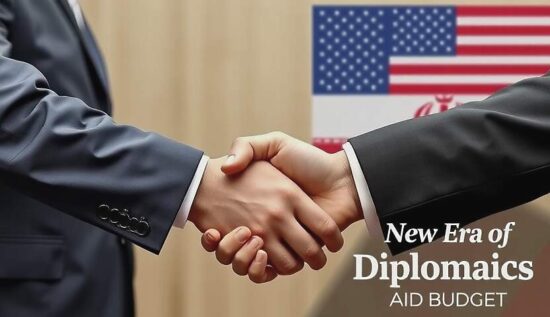The measures announced by US President Donald Trump to freeze funding for foreign aid and overhaul or disband the US Agency for International Development (USAID) have been welcomed in Iranian state media and by the Iranian government. According to new decrees by Trump, the financing of opposition groups in the US and abroad, including pro-democratic activists and others seen as part of the US government’s efforts to support democracy worldwide, will be halted.
Meanwhile, Iranian officials appear to be signaling that they are waiting for a signal from Trump on whether he is willing to negotiate over Tehran’s rapidly advancing nuclear program. At stake are billions of dollars that Iran has been denied due to crushing sanctions, as well as the future of a program that is close to enriching uranium to a level capable of being used in weapons.
US President Trump has stated that he will work towards a diplomatic solution in the conflict with Iran. On his social media platform, Truth Social, he expressed support for a new nuclear agreement with the country, writing, “I want Iran to be a great and successful country, but one that doesn’t have nuclear weapons.” He also dismissed reports that the US, in cooperation with Israel, is planning to “blow Iran to pieces” as “extremely exaggerated.” Trump would prefer a “nuclear peace agreement” under which Iran can “grow and thrive peacefully.”
Just on Tuesday, Trump signed a memorandum to intensify the sanctions policy against Iran and announced his intention to return to a policy of “maximum pressure” against the country.
Iran’s Foreign Minister, Abbas Araghtchi, had signaled a willingness to engage in talks after Trump’s sanctions announcement, saying, “If the main concern is that Iran does not seek nuclear weapons, then that is achievable.”
The West has repeatedly accused the Islamic Republic of pursuing nuclear weapons in the past. The dispute over Iran’s nuclear program has recently intensified, with Tehran announcing the activation of thousands of new centrifuges for uranium enrichment after a formal criticism by the International Atomic Energy Agency (IAEA). The current level of uranium enrichment in Iran, up to 60%, is below the 90% or more required for nuclear weapons, according to experts.





